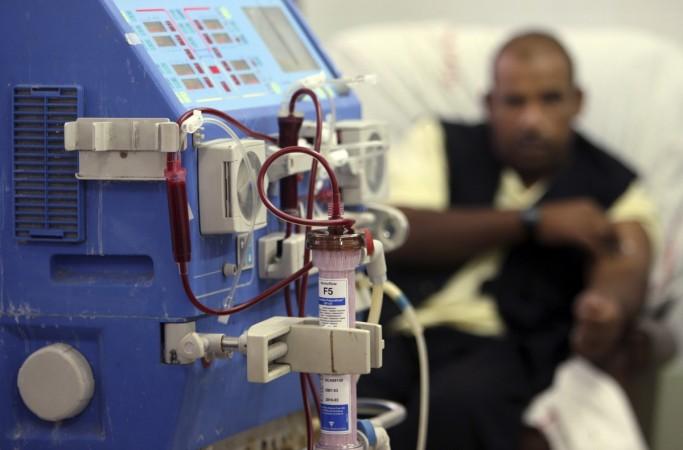
Most people with diabetes fear kidney failure as it has long-term repercussions and can prove fatal. But there are also other causes like uncontrolled high blood pressure, chronic and polycystic kidney disease which can cause damage to the kidneys and eventually they fail.
One of the immediate treatments given for patients of renal failure is dialysis (which costs around Rs 15,000 to 20,000 per month) but more severe damage can mean that a kidney transplant is required. Nearly 5000 kidney transplants take place each year in India in the 70 official kidney transplant centres around the country.
What are the Indian laws related to organ donation?
The following laws are applicable to organ donation in India - The Transplantation of Human Organs Act, 1994; The Transplantation of Human Organs Rules - 1995 (GSR 571(E), dt.31-7-2008); The Transplantation of Human Organs Rules - New Forms - 1995 (GSR 571(E), dt.31-7-2008). There have also been amendments - THO Amendment Bill 2011; THO Amendment Act 2011 and THO Rules 2014.
What is the process for a kidney transplant?
Dr Subramanian Swaminathan, MD DNB MNAMS, AB (Internal Medicine, Infectious Diseases), Global Hospitals, states that there are two ways in which a patient can get a kidney transplant. "The patient can get a kidney either from a living donor or from a cadaveric donor. For a kidney from a living donor, there are committees at the hospital level and state level that will assess and verify the documents. The kidney from a living donor must come from a blood relative," he explains. A patient needs just one kidney to function and usually only one kidney transplant is performed at a time.
Since obtaining a kidney from a living donor is the easiest method, there has been rampant fraud in India where kidney rackets have been unearthed. To clamp down on such incidents, the state level committee verifies documents thoroughly to ensure that the living donor is indeed a blood relative. The only non-blood relative who can donate a kidney is reportedly the spouse.
"With regard to cadaveric donors, this option is looked at for the patient only if no match is found for the patient among relatives. The patient needs to first register with the hospital which in turn will register them with the state governing body. For instance, in Karnataka it is the Zonal Coordination Committee of Karnataka for Transplantation which oversees this, while in Tamil Nadu it is the Mohan Foundation," says Dr Subramanian. These government-appointed bodies oversee the procurement of cadaver organs in that particular state and a strict protocol is followed.
Since two kidneys can be harvested from a cadaveric donor, one kidney stays with the hospital which convinces the deceased person's family to donate his/her organs. The hospital is then free to give it to the patients on their registered list. The second kidney from the deceased goes into a common pool and is given to the hospital which is on top of the registered list. These lists are of two types - one based on blood groups and the other based on the hospital you are registered in.
How long does a kidney transplant remain successful?
According to the Apollo Hospitals website, a kidney transplant can last for between 10 to 20 years. Though medication is taken to prevent the body from rejecting the kidney sometimes it does not help. In such cases, dialysis is continued and a fresh transplant required.
What is the cost for a kidney transplant?
Currently, the cost of having a kidney transplant ranges from Rs 5 lakh to Rs 6 lakh in private hospitals in India says The Times of India. The exorbitant costs of getting a kidney transplant are seen as a barrier for many. But government hospitals like AIIMS in Delhi perform this service free of cost for poor patients and even absorb the costs of pre-transplant evaluation and dialysis. The National Illness Assistance Fund helps those below the poverty line with the cost of one year of immunosuppression drugs.
Kidney disease in India
- More than 2 lakh people suffer from end-stage kidney disease each year. Around 70% have access to dialysis but nearly 60% of them give up because of high treatment costs.
- There are around 2500 dialysis centres (most in private hospitals) across India concentrated in the cities.
- The monthly expenditure on dialysis is around Rs 15,000 to Rs 20,000.
- The cost for a kidney transplant can range from Rs 5 lakh to Rs 6 lakh depending on the state and hospital. It is cheaper for a living donor.
- Post-operative care costs about Rs 15,000 per month for six months.
- Medication to be taken life-long costs approximately Rs 10,000 a month.

















